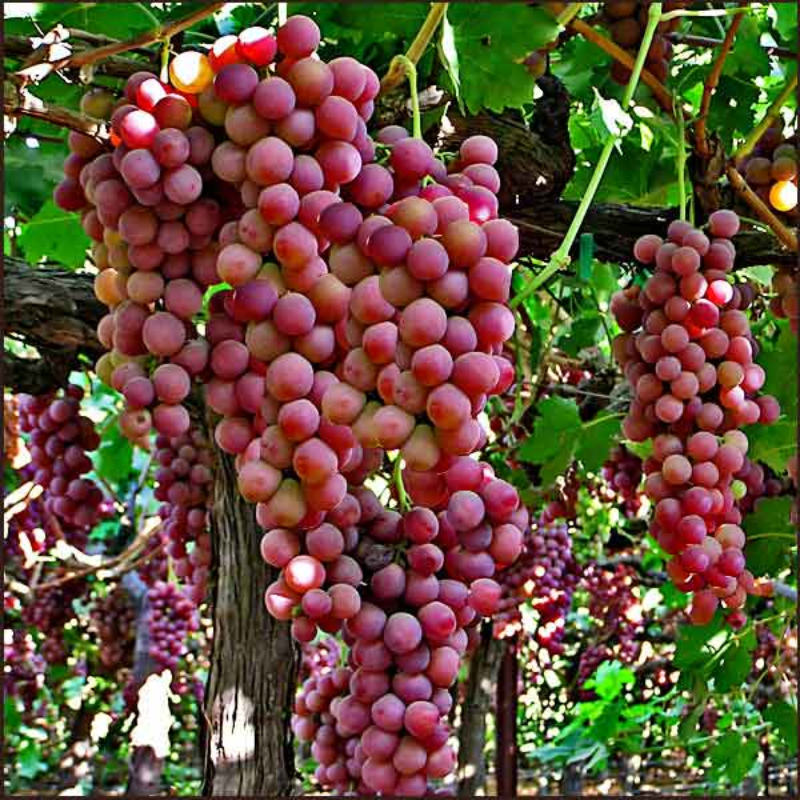- Species and varieties: The deep purple grape, often referred to as Concord grape, belongs to the species Vitis labrusca. There are several varieties of deep purple grapes, including Concord, Black Corinth, and Muscadine.
- Hybrid or heirloom: Deep purple grape seeds can be both hybrid and heirloom. Concord grapes, for example, are often heirloom varieties known for their rich flavor and historical significance. However, there are also hybrid varieties developed for improved disease resistance and yield.
- Pruning and training: Pruning is crucial for grapevines to ensure healthy growth and fruit production. Prune annually during the dormant season to remove dead or diseased wood and to shape the vine. Training the vines on a trellis or arbor helps in managing growth and improving air circulation.
- Fertilization needs: Grapevines benefit from balanced fertilization. Apply a balanced fertilizer (such as 10-10-10) in early spring before new growth begins. Avoid over-fertilizing, as excessive nitrogen can lead to vigorous vegetative growth at the expense of fruit production. Organic compost or well-rotted manure can also be used to enrich the soil.
- Hardiness zones: Deep purple grapes are suitable for USDA hardiness zones 5 through 9. They thrive in regions with cold winters and warm summers.
- Climate requirements: These grapes require a temperate climate with well-defined seasons. They need a period of cold dormancy in winter and warm temperatures during the growing season. Adequate sunlight and well-drained soil are essential for optimal growth.




